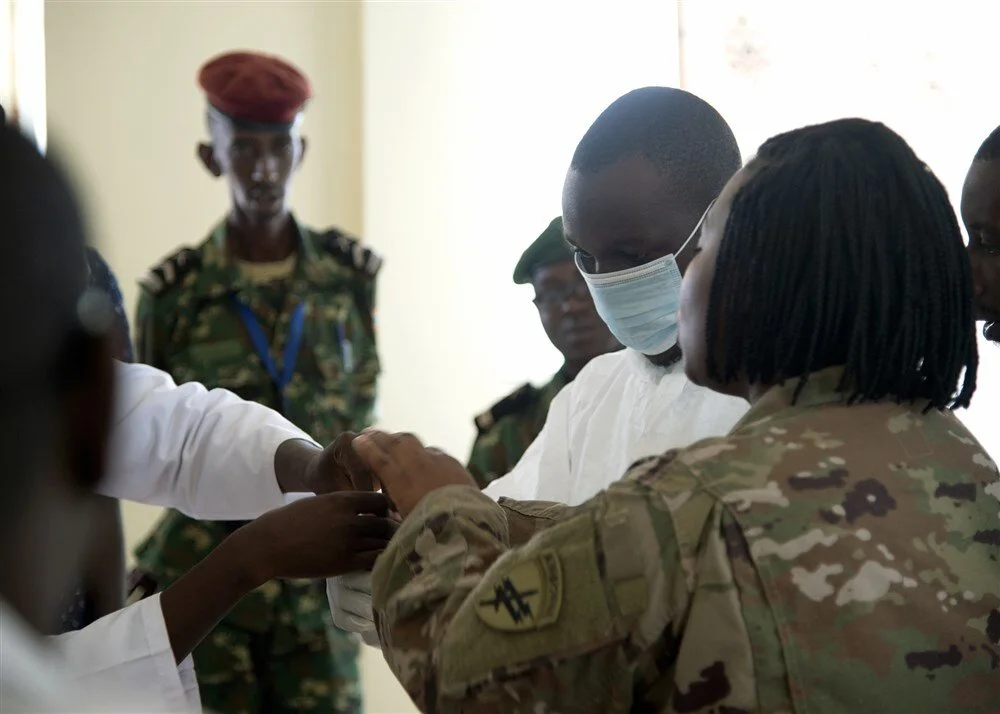Arrest of Health Minister Further Destabilizes the Democratic Republic of the Congo
Nurses and hospital staff don protective gear in preparation for a presentation on the Ebola virus near the border of the DRC.
Police in the Democratic Republic of the Congo arrested the country’s former health minister, Oly Ilunga Kalenga, on September 14 for allegedly mismanaging $4.3 million allocated for fighting the Ebola virus. The arrest has only added to the instability and confusion in the Congo following this summer’s resurgence of the Ebola virus. D.R.C. police took action as they became increasingly concerned that Kalenga would attempt to flee the country to avoid prosecution.
Although there is no evidence that the arrest was retaliatory, it has become clear that there is disagreement in Kinshasa over how to manage this new outbreak of the virus. In his resignation, Kalenga cited "interference in the management of the response" as one of his reasons for departing the government.
Deep divisions have emerged in the Congolese government in recent months over the introduction of a second Ebola vaccine in the region, a move which the former minister was strongly against. He and opposition members of parliament feared the new vaccine was untested and that Congolese civilians were being used as “guinea pigs.”
President Félix Tshisekedi and world health officials meanwhile maintain that the vaccine is safe and that its use is warranted, despite still being in the experimental phase.
The international community largely views the development of the second vaccine by Johnson & Johnson as a success story. They hope that it can be used in conjunction with a vaccine already in use, developed by Merck, to slow the progression of the virus. Although the Merck vaccine has proved successful, it is in short supply.
When the Merck vaccine was rolled out in 2015, it was also in the experimental stage, meaning it had not received a license from the World Health Organization (WHO). It was approved for “compassionate use,” under which the WHO approves a vaccine’s use inside a country’s borders, with that country’s approval, when there are no alternative drugs available. This new vaccine from Johnson & Johnson would be approved under the same standard.
The shortage of the Merck vaccine and other drugs, alongside divisions in Kinshasa, have only served to further stymie efforts to address the virus.
Residents of the DRC are incredibly distrustful of medical staff and are often unwilling to seek help should they or a family member contract ebola. A recent survey of residents hit hardest by the recent outbreak showed that an incredible 36% of respondents believe the virus itself was a fabrication. This has made fighting the virus particularly difficult.
After decades of instability and conflict, healthcare workers are on the front lines of attempting to rebuild trust in the government among the Congolese people. If they fail, an effective response to the virus may become near impossible.

